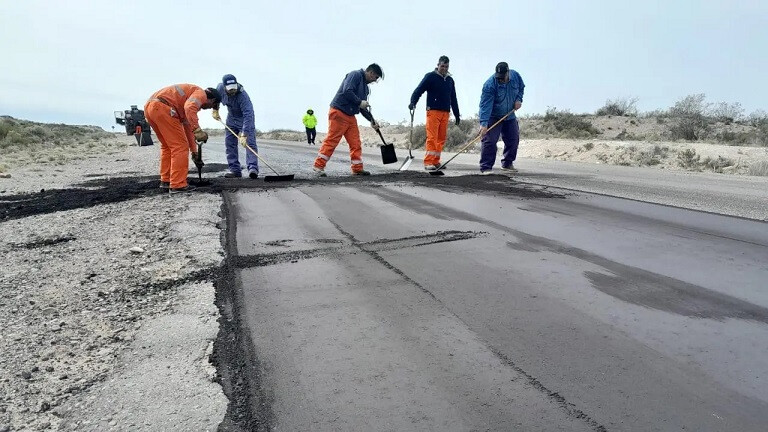
Bnamericas reported on May 8, 2025, that Argentina's Río Negro province has officially commenced a 31.9 billion peso (approximately US$28.8 million) road repaving project on provincial routes 6 and 8, partially funded by the Inter-American Development Bank (IDB).
This project is anticipated to modernize and improve the main arterial road network of Río Negro province, contributing to the revitalization of the regional economy. It is particularly expected to positively impact the growth and development of the region's key industries, including tourism, mining, and petrochemicals.
One of the contracts related to the project was awarded to CN SAPAG and includes the repaving of a 57-kilometer section of provincial route 6 between the intersection of national route 22 and provincial route 68. CN SAPAG, a company with extensive experience and technical expertise in road construction and maintenance, is expected to significantly improve the road conditions of this section through this project.
Another contract was awarded to Centro Construcciones, which will be responsible for the repaving of a 97-kilometer section of provincial route 6 connecting to the intersection with provincial route 8, and a 31.4-kilometer section of provincial route 8 leading to La Esperanza. Centro Construcciones also has a long history and proven track record in the road construction sector, and the involvement of these two companies is seen as a crucial driving force for the successful completion of the project.
This road repaving project is expected to have significant ripple effects across the entire regional economy, going beyond simple road improvements. Firstly, Río Negro province boasts beautiful natural landscapes and diverse tourism resources, making the tourism industry a vital pillar of the local economy. The dilapidated road network has hindered the development of the tourism industry by reducing accessibility for tourists and causing travel inconvenience. This road improvement is expected to enhance the convenience of travel for tourists and improve access to regional tourist attractions, thereby significantly contributing to the revitalization of the tourism industry.
Furthermore, Río Negro province has abundant mineral resources and deposits of oil and natural gas, making the mining and petrochemical industries important parts of the regional economy. These industries require an efficient road network for the transportation of raw materials and the movement of products. This road repaving project is expected to increase the efficiency of logistics movement and reduce transportation costs, thereby positively impacting the competitiveness of related industries. In particular, securing a safe and smooth road network can create a favorable environment for attracting investment related to mining and oil field development.
The financial support from the Inter-American Development Bank (IDB) is a crucial driving force behind this project. The IDB is an international financial institution that supports the economic and social development of Latin America and the Caribbean, supporting development projects in various fields such as infrastructure development, poverty reduction, and environmental protection. The IDB's funding for this project can be interpreted as international recognition of the urgency and economic importance of improving road infrastructure in Río Negro province. The IDB's involvement is also expected to contribute to enhancing the transparency and efficiency of the project.
The Argentine government also emphasizes the importance of improving road infrastructure at the national level and is expanding related investments. This is because a dilapidated road network negatively impacts the overall economy by increasing logistics costs, intensifying traffic congestion, and causing safety issues. The road repaving project in Río Negro province can be seen as part of these national efforts and is expected to serve as a positive precedent for other provincial governments.
Experts analyze that this road repaving project in Río Negro province will have significant positive long-term effects on the regional economy. The improved road network will not only contribute to improving the quality of life for local residents but can also positively impact attracting new investment and creating jobs. In particular, the revitalization of the tourism industry can be a crucial factor in increasing the income of local communities and promoting the development of related industries.
Provincial routes 6 and 8, which will be repaved through this project, play a key role in connecting major cities and production areas within Río Negro province. Therefore, the improvement of these roads is expected to be a crucial foundation for smoothly circulating the economic lifeblood of the region.
In the future, thorough quality control and safety management will be required during the project's progress. In addition, multifaceted efforts will be needed to minimize inconvenience to local residents due to construction and to maintain smooth traffic flow. The government of Río Negro province will need to consider these points to efficiently manage the construction and successfully complete it.
In conclusion, the commencement of this IDB-backed road repaving project in Argentina's Río Negro province is an important step towards improving the dilapidated regional infrastructure and is expected to significantly contribute to the revitalization of the region's key economic drivers: tourism, mining, and the petrochemical industry. Through the successful completion of the construction, Río Negro province will be able to establish a more developed economic base and improve the quality of life for its residents.
[Copyright (c) Global Economic Times. All Rights Reserved.]






























